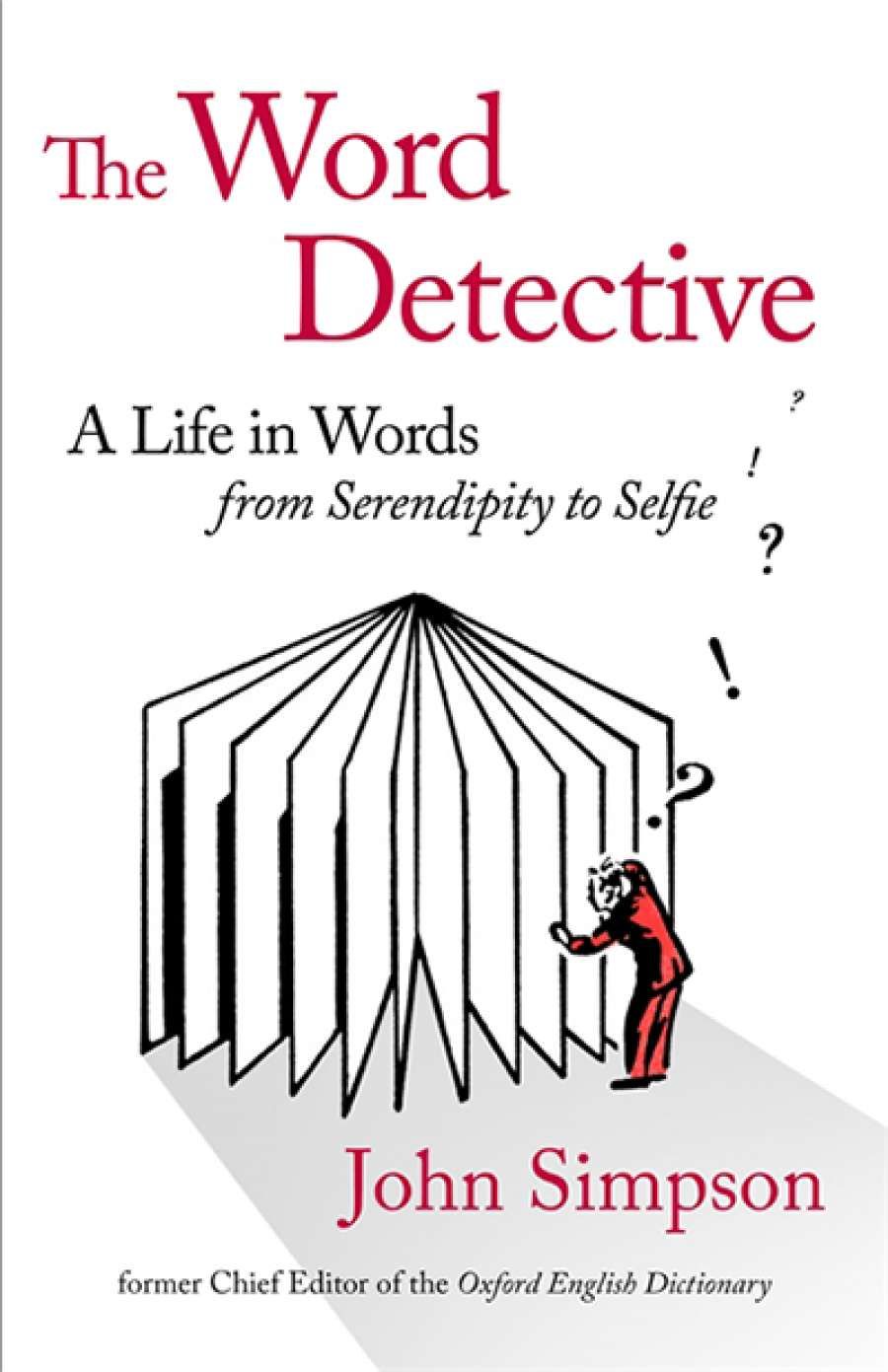
- Free Article: No
- Contents Category: Language
- Custom Article Title: Bruce Moore reviews 'The Word Detective: A life in words, from Serendipity to Selfie' by John Simpson
- Book 1 Title: The Word Detective
- Book 1 Subtitle: A life in words, from Serendipity to Selfie
Along with Edmund Weiner, his co-editor in 1986, Simpson convinced OUP to produce a ‘computerised’ (what would later be called ‘digitised’) version of the OED that integrated the original text with all the supplements, and added about 5,000 new entries. This appeared as a printed twenty-volume work in 1989, and also as a CD-ROM. By 1994 Simpson had convinced OUP that a complete revision was viable, and in the cloud cuckoo land of publishing schedules, the year 2000 was proposed for completion. Of course, this became 2005, then 2010, and then a finishing date was no longer mentioned. But during the noughties the project became unstoppable (and noughties was an addition in 2001): the OED was online, revisions were being added quarterly so that publication became incremental, the reading program was broad and democratic, there were many new features (a thesaurus, graphics, and so on), and it was reaching an audience unimaginable to the previous editors.
Simpson began his lexicographical training in the Victorian tradition of transcribing quotations on to index cards. By the end, he and his lexicographers were searching massive electronic databases for evidence of words and meanings. The basic skill-set, however, remained stable: the ability to trace the history of a word, to sort its evidence into different meanings, and to reveal how one meaning leads to another, and to construct clear and precise definitions for these meanings. Left-handedness seems to be an advantage. Training in linguistics is not.
 John Simpson (photograph by Ben Roberts)While Simpson at times sets out what he regards as the skills required of a lexicographer, these skills are most evident in the fifty or so page-length interludes (set off from the main text) that explore the histories of particular words, such as burpee (were earlier editors not interested in sport?), flavour of the month (originally ice-cream), inkling (whatever happened to the verb ‘to inkle’?), marshall (a Germanic word, literally ‘mare/horse-farrier’), niche (it rhymed with ‘hitch’ until very recently), 101 (yes, it’s a word), pom (‘for every Australian it is knowingly ambiguous’), and selfie (perhaps from ‘self-portrait’, but Simpson urges ‘caution’, since it might come straight from ‘portrait of myself’). Simpson’s discussions demonstrate how a historical dictionary constructs the life-histories of its words. Thus, the narrative of Simpson’s account of his professional career is interwoven with these word histories that show us why the profession of lexicography matters.
John Simpson (photograph by Ben Roberts)While Simpson at times sets out what he regards as the skills required of a lexicographer, these skills are most evident in the fifty or so page-length interludes (set off from the main text) that explore the histories of particular words, such as burpee (were earlier editors not interested in sport?), flavour of the month (originally ice-cream), inkling (whatever happened to the verb ‘to inkle’?), marshall (a Germanic word, literally ‘mare/horse-farrier’), niche (it rhymed with ‘hitch’ until very recently), 101 (yes, it’s a word), pom (‘for every Australian it is knowingly ambiguous’), and selfie (perhaps from ‘self-portrait’, but Simpson urges ‘caution’, since it might come straight from ‘portrait of myself’). Simpson’s discussions demonstrate how a historical dictionary constructs the life-histories of its words. Thus, the narrative of Simpson’s account of his professional career is interwoven with these word histories that show us why the profession of lexicography matters.
There is a third strand in this weaving process, and this is the history of Simpson’s personal life, focusing on his life with Hilary and their two children, Kate and Ellie. Hilary and John were at York as undergraduates, and as postgraduates at Reading, and it was Hilary who spotted the advertisement for the OED job in the Times Literary Supplement in 1976. The primary focus in this personal narrative is on Ellie, who was born in 1990, and who reached a developmental age of only eighteen months. Doctors have been unable to give a cause or name to Ellie’s condition: she neither speaks nor understands words. Thus there is an awful irony in the fact that the man who was in charge of the world’s words has a daughter who is wordless, and that his wondrous dictionary cannot give a name to her condition.
Simpson comes across as a person of quite forthright views about his craft and those who pursue (or attempt to pursue) it, while at the same time revealing an extraordinary humility and dry humour. There has never been a book that so successfully demonstrates the labours and joys of dictionary making, and it reveals Johnson’s famous description of the lexicographer as a ‘harmless drudge’ to be the Johnsonian joke that it always was.


Comments powered by CComment